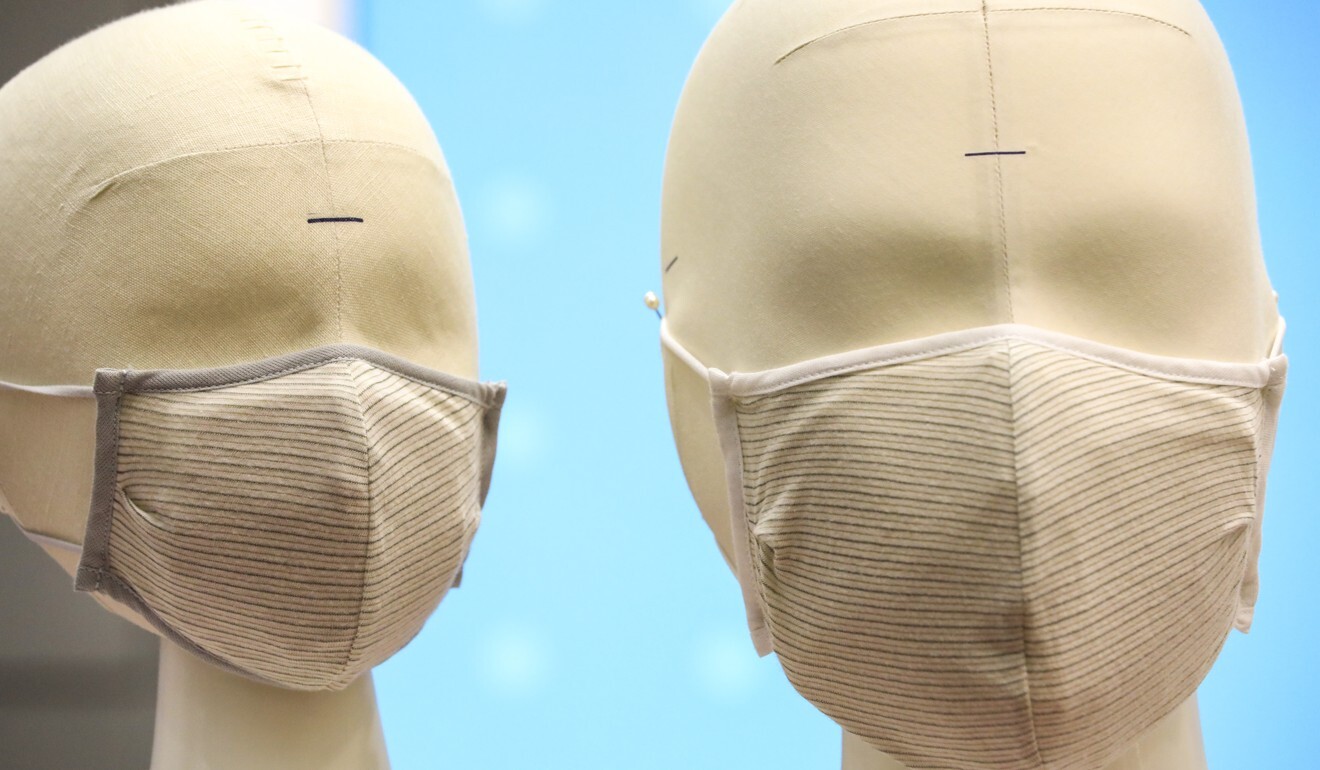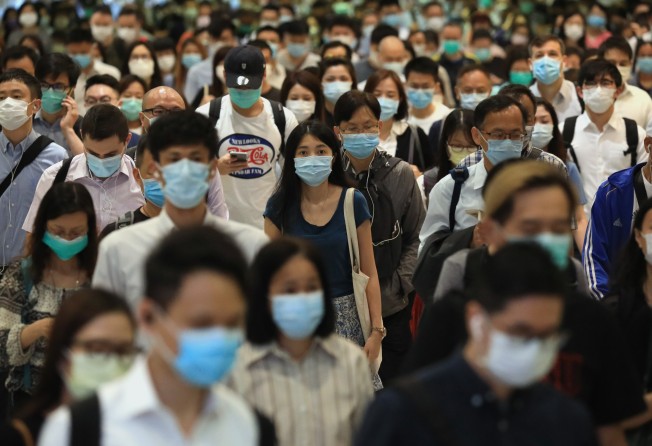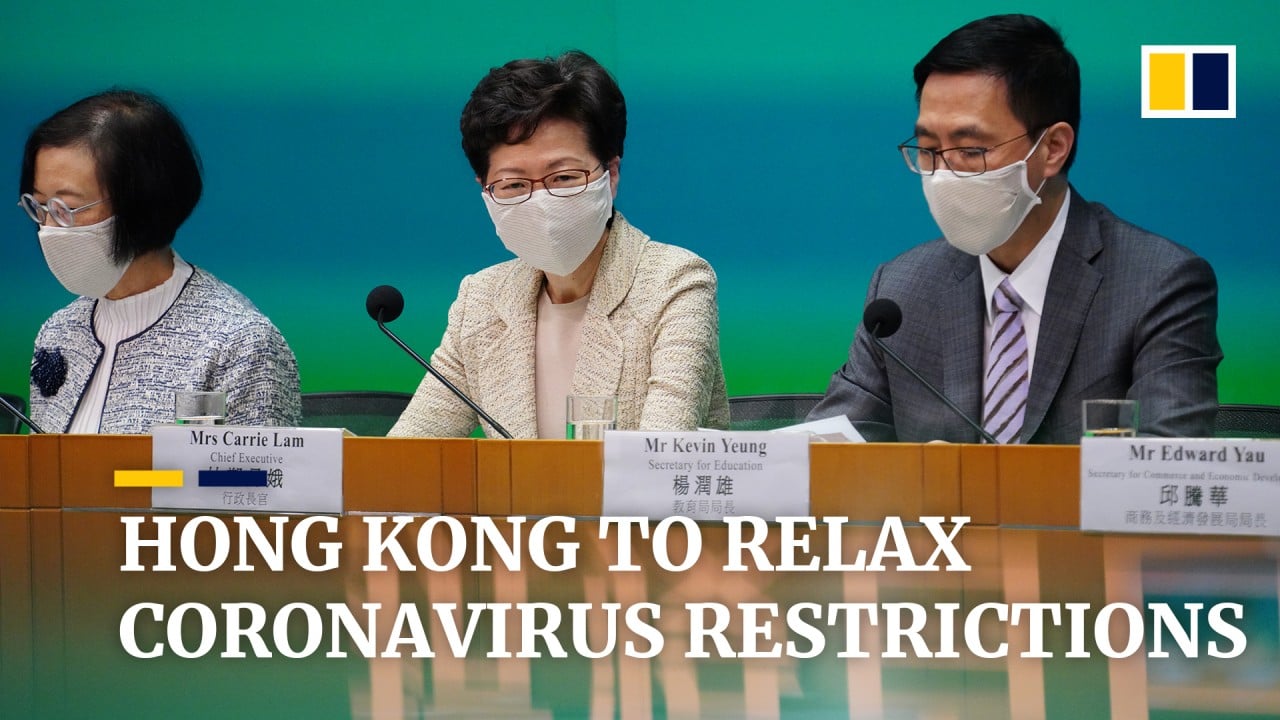
Coronavirus: Uniqlo and H&M manufacturer making reusable masks for Hong Kong government in Vietnam
- Crystal International Group revealed to be manufacturer picked by government to make CuMask+
- Official says production is not for profit and defends decision not to put it out to public tender

The production of reusable masks for all Hongkongers was not for profit, a government official said as she revealed the manufacturer’s identity and defended the lack of a public tender for the project worth hundreds of millions of dollars.
Annie Choi Suk-han, permanent secretary of the Innovation and Technology Bureau, said most of the masks were being made by Crystal International Group at a facility in Vietnam.
The rest were assembled, disinfected and packed using three local facilities offered free of charge by Hong Kong companies, including Nan Fung Group, Novetex Textiles and TAL Apparel.
On Thursday, Choi said the government had withheld the information so as not to “cause trouble” to parties involved, but did not explain what that trouble might have been.

Official confirmation came after the government was questioned about its reasons for not launching a public tender for production of the masks.
Choi said Crystal International Group, a listed company known for manufacturing for fast-fashion brands such as Uniqlo and H&M, set aside other work to handle this “special project” for the city.
“I am actually worried, as I don’t know if [the manufacturer] can recover the cost,” Choi said on a radio programme.
She said the Vietnamese plant was chosen as there were no export restrictions on mask products there, or Covid-19 lockdown measures that could delay production.
The mask, which incorporates copper as a key filtering component, was patented and developed by the Hong Kong Research Institute of Textiles and Apparel (HKRITA), a government-funded non-profit organisation. Its name, CuMask+, is derived from the chemical symbol for copper.
On Wednesday, some 2 million Hongkongers signed up for the masks that can be washed up to 60 times, and which are expected to be delivered via registered mail to homes in two weeks’ time.
Costing about HK$40 each, the masks are being given away to the city’s 7.5 million residents.
The government plans to distribute at least 8 million, including two each to kindergarten and primary pupils, meaning the cost could be about HK$320 million (US$41 million).
It had set aside HK$800 million from its anti-epidemic fund to finance the project.
Officials had initially refused to reveal the identity of the manufacturer and other firms involved, and were accused of lacking transparency, given the project was not publicly tendered.
According to earlier government statements, the project was entirely coordinated by HKRITA.
Frankie Wong Chi-fai, executive director of Crystal Group, and Tommy Siu Yuk-yin, vice-president of TAL Apparel, are both HKRITA directors.
“I did not reach out to that director [with Crystal Group], we contacted Crystal Group for their views [on the project],” Choi said, adding the company had offered “money and effort” on its own initiative. “I don’t understand how there could be a transfer of benefits.”
Choi said the manufacturer faced fluctuating prices in production and shipping fees, and it was not sure if it could recover the cost.
She said HKRITA also approached other manufacturers, but some were affected by lockdown measures and export restrictions, and could not be involved.
On the lack of a public tender, Choi said the project was conducted in accordance with the government and the World Trade Organisation’s procurement guidelines.
“According to the government regulations, in case of public health urgency, we can conduct direct procurement,” Choi said.
In a statement on Thursday, the Innovation and Technology Bureau said it had decided to directly procure the masks from HKRITA so it could supply them to Hongkongers as soon as possible.
“The CuMask+ project is of a not-for-profit nature, all costs are required to be fully accountable,” it said.
Meanwhile, Yan Chan, HKRITA’s director for business development, said the government had approached the institute in February, before it started to look out for manufacturers. The production and testing began in March.
She said Crystal Group had taken up the project with a “reasonable” production price, but she did not elaborate further details. She also said that the group’s executive director, Wong, had withdrawn from meetings during the decision-making process.
During a press tour of Novetex Textiles’ workshop in Tai Po, which is responsible for sanitising parts of the reusable masks, Chan said the plant would disinfect and pack 500,000 masks that had been produced in the city and part of 8.5 million pieces Crystal Group had made in Vietnam.
Two shifts of about 35 packaging workers at the site can pack 80,000 masks working for 16 hours per day.
She said all the masks would be ready for distribution within two weeks.
Crystal Group said in a statement on Thursday Wong had made a declaration of interest in the project during a board meeting in February, but had not taken part in the discussion and the decision-making process. It also revealed that the cost for each mask would be less than US$1 (HK$8).
Help us understand what you are interested in so that we can improve SCMP and provide a better experience for you. We would like to invite you to take this five-minute survey on how you engage with SCMP and the news.
